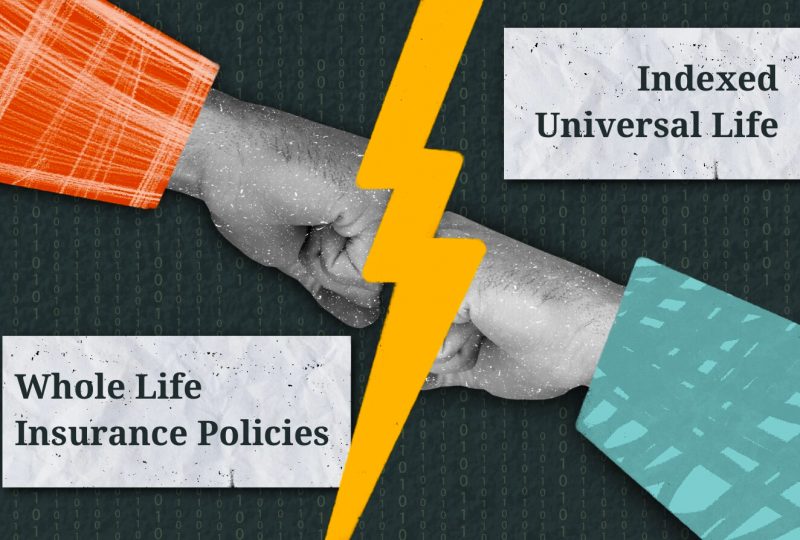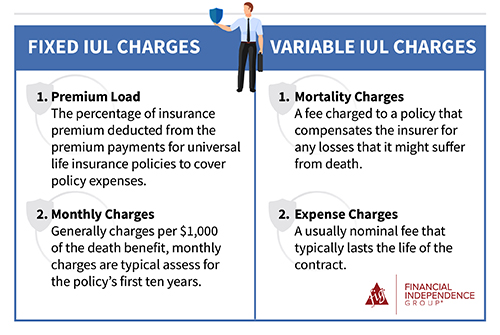All Categories
Featured
Table of Contents
Indexed Universal Life (IUL) insurance coverage is a kind of long-term life insurance policy policy that incorporates the features of traditional universal life insurance policy with the capacity for cash worth growth linked to the performance of a stock market index, such as the S&P 500 (Long-term Indexed Universal Life benefits). Like other types of long-term life insurance policy, IUL provides a fatality benefit that pays out to the recipients when the insured passes away
Money worth buildup: A part of the costs payments enters into a money value account, which makes passion in time. This cash value can be accessed or borrowed versus during the policyholder's life time. Indexing option: IUL plans offer the opportunity for money value growth based on the performance of a stock market index.
What types of Indexed Universal Life Policyholders are available?
Similar to all life insurance policy products, there is additionally a set of dangers that insurance policy holders must recognize before considering this type of policy: Market risk: One of the primary threats linked with IUL is market danger. Since the cash money worth development is linked to the efficiency of a stock exchange index, if the index chokes up, the cash value might not expand as expected.

Sufficient liquidity: Policyholders must have a stable financial situation and be comfortable with the superior repayment needs of the IUL policy. IUL allows for flexible costs repayments within certain limitations, but it's important to keep the plan to ensure it attains its designated purposes. Rate of interest in life insurance policy coverage: Individuals that need life insurance coverage and an interest in cash value growth might locate IUL attractive.
Candidates for IUL need to have the ability to recognize the auto mechanics of the plan. IUL might not be the most effective choice for individuals with a high resistance for market threat, those that prioritize affordable investments, or those with even more immediate financial demands. Consulting with a qualified financial expert that can supply personalized guidance is crucial prior to taking into consideration an IUL plan.
All registrants will get a schedule invitation and link to join the webinar through Zoom. Can't make it live? Register anyhow and we'll send you a recording of the discussion the next day.
Indexed Universal Life Policy
You can underpay or avoid premiums, plus you may have the ability to change your survivor benefit. What makes IUL different is the means the cash money worth is invested. When you get an indexed universal life insurance policy policy, the insurance provider provides several alternatives to select a minimum of one index to utilize for all or component of the cash worth account segment of your plan and your survivor benefit.
Flexible premiums, and a survivor benefit that may also be versatile. Money worth, together with potential development of that worth through an equity index account. IUL for retirement income. An alternative to assign component of the money worth to a set rate of interest alternative. Minimum rate of interest warranties ("floors"), however there might also be a cap on gains, usually around 8%-12%. Collected cash money worth can be made use of to reduced or potentially cover premiums without subtracting from your survivor benefit.
Insurance holders can decide the percentage assigned to the taken care of and indexed accounts. The worth of the picked index is taped at the start of the month and compared to the value at the end of the month. If the index boosts throughout the month, passion is added to the money value.
The resulting interest is added to the cash money worth. Some policies calculate the index acquires as the sum of the adjustments for the duration, while various other plans take an average of the everyday gains for a month.
How do I choose the right Iul For Wealth Building?
The rate is set by the insurer and can be anywhere from 25% to greater than 100%. (The insurance firm can likewise transform the take part price over the lifetime of the policy.) For example, if the gain is 6%, the engagement price is 50%, and the present money worth total amount is $10,000, $300 is included in the cash money value (6% x 50% x $10,000 = $300).
There are a number of pros and cons to think about before purchasing an IUL policy.: Similar to standard global life insurance, the insurance holder can raise their premiums or reduced them in times of hardship.: Quantities credited to the cash money value grow tax-deferred. The cash value can pay the insurance coverage premiums, enabling the insurance holder to reduce or quit making out-of-pocket premium repayments.
What is included in Indexed Universal Life Policyholders coverage?
Numerous IUL policies have a later maturation day than various other kinds of universal life policies, with some ending when the insured reaches age 121 or even more. If the insured is still to life during that time, policies pay the death advantage (but not normally the cash money value) and the proceeds may be taxed.

: Smaller sized plan face values don't use much benefit over regular UL insurance policy policies.: If the index decreases, no interest is attributed to the cash money worth. (Some plans offer a reduced guaranteed price over a longer duration.) Various other financial investment cars utilize market indexes as a standard for efficiency.
With IUL, the goal is to benefit from upward movements in the index.: Because the insurance business only buys choices in an index, you're not directly invested in stocks, so you don't profit when companies pay returns to shareholders.: Insurers charge costs for handling your money, which can drain money value.
What is the most popular Long-term Iul Benefits plan in 2024?

For lots of people, no, IUL isn't far better than a 401(k) - IUL investment in regards to conserving for retirement. The majority of IULs are best for high-net-worth people searching for methods to reduce their gross income or those that have actually maxed out their other retired life options. For everyone else, a 401(k) is a much better financial investment vehicle because it doesn't carry the high fees and premiums of an IUL, plus there is no cap on the quantity you may make (unlike with an IUL policy)
, the earnings on your IUL will certainly not be as high as a normal financial investment account. The high cost of premiums and charges makes IULs pricey and significantly less economical than term life.
Indexed universal life (IUL) insurance coverage supplies cash value plus a fatality benefit. The cash in the cash money value account can gain passion through tracking an equity index, and with some commonly assigned to a fixed-rate account. However, Indexed global life policies cap how much cash you can gather (often at much less than 100%) and they are based upon a potentially unstable equity index.
Who are the cheapest Indexed Universal Life Vs Whole Life providers?
A 401(k) is a far better option for that function because it does not lug the high fees and premiums of an IUL policy, plus there is no cap on the quantity you might make when invested. Most IUL policies are best for high-net-worth individuals looking for to lower their gross income. Investopedia does not give tax obligation, financial investment, or monetary services and suggestions.
If you're considering getting an indexed global life plan, very first talk with an economic advisor who can describe the subtleties and offer you an accurate image of the actual possibility of an IUL plan. Make sure you recognize exactly how the insurance firm will certainly compute your rate of interest, profits cap, and fees that might be assessed.
Latest Posts
Cost Universal Life Insurance
Indexed Variable Universal Life Insurance
What Is Indexation In Insurance